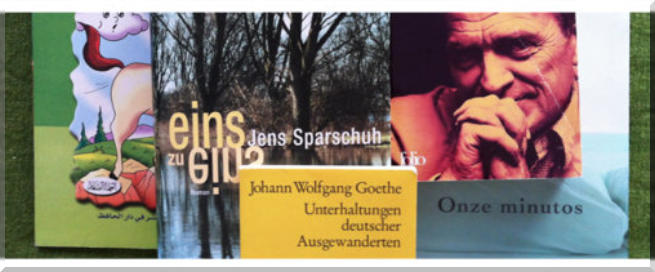10 Awesome Words That Don’t Exist
in English
.






‘Knowledge is power’


World’s
encyclopedic
knowledge
compacted
in
your
hand




Please raise the vol to listen to the
lady airing awe @ the SINGLE author encyclopedia
One of the best things about learning new languages is discovering entirely new ways of
saying things that don’t exist in your
own language. This new vocabulary gives you not just insights into other cultures, but also a
new perspective on the world.
Thanks to many of my talented bilingual friends, I was able to put together this fun list of 10
amazing words that don’t exist in
English.
1. Téng (疼) is a special term for love in Chinese. It’s the same character as “to hurt” (as in
“my stomach hurts”), and so it is love
mixed with an ache or pain. It is really only used from a parent to a child.
2. You know that stretch you do when you wake up in the morning? Ungdayee in the Hindi
word for it. Almost shocking this word
isn’t universal across languages, right?
3. Concolón is the Ecuadorian Spanish (and perhaps other dialects of Spanish too) for that
crispy, almost-burnt-but-not-quite rice
that remains at the bottom of the pan after you cook it. That’s the stuff that’s so yummy, you’re
elbowing your way to the pot to
get a taste.
4. Ever had that experience when something is so damn cute (think puppy, or adorable baby
if you like kids) you can’t control
yourself, and you grit your teeth, maybe bite your lip or cheek, and have the irrepressible urge
to squeeze the thing? Gigil is the
brilliant Tagalog word for that: a situation that overwhelms your self-control because of cute
overkill.
5. Firgun is the amazing Hebrew concept for taking pleasure in someone else’s success,
with a good heart and without jealousy.
The opposite is the German Schadenfreude, when you take joy in someone else’s misfortune.
6. T’aarof is the Farsi word for a standard of etiquette that runs deep in Iranian culture, a
concept that captures both the
symbolism and elusiveness embedded in the language. A host must offer a guest anything they
desire, even if the offer is not
genuine, but then the guest must also refuse. This exchange repeats itself many times (which
would be lost on someone outside
the culture), until the host and guest are able to somehow determine whether both the offer and
refusal are genuine or just polite.
7. Dor in Romanian is similar to the Portuguese saudade—the longing of missing someone.
8. Kreislaufstörung in German is directly translated as a circulatory disturbance or
circulation disorder. It’s the reason your
German coworkers are calling in sick even though you drag yourself to work with a fever and
a box of handkerchiefs.
You may also like:
Why India hasn't created tech giants like Google Apple or Facebook
Why we should all go nuts for nuts: From pecans to peanuts
World famous quotations from equally famous personalities
Another financial crisis around the corner? Finances to the brink
Empowering Book Newsletter






WOMEN’S POWER: ITS PAST, ITS PRESENT, ITS FUTURE: FEMOCRACY
WEB PAGES
OUR OFFERING
UPLOADED ITEMS
OUR EMAIL
kri200@womenspowerbook.org
QUESTION




















